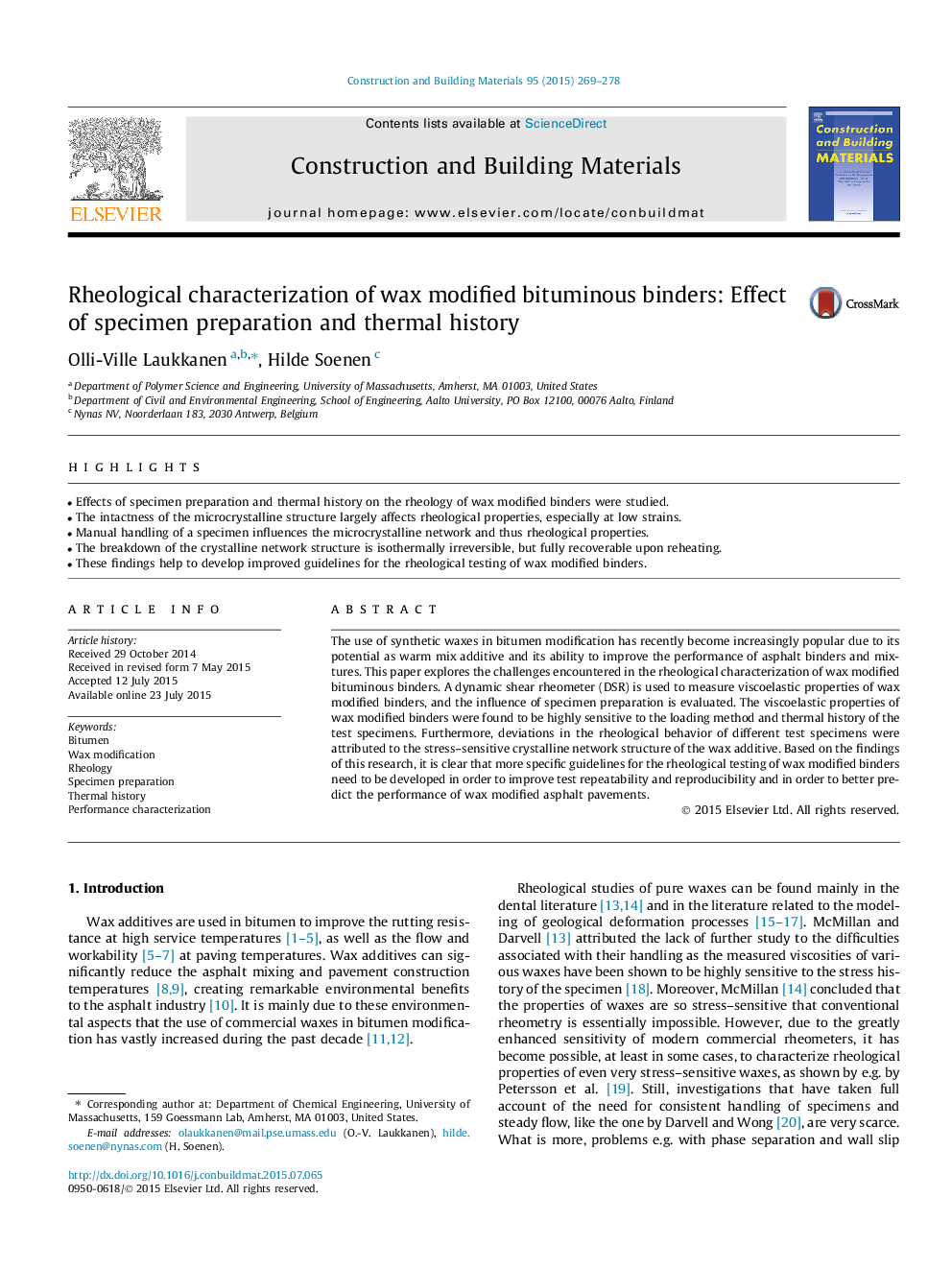| Article ID | Journal | Published Year | Pages | File Type |
|---|---|---|---|---|
| 256780 | Construction and Building Materials | 2015 | 10 Pages |
•Effects of specimen preparation and thermal history on the rheology of wax modified binders were studied.•The intactness of the microcrystalline structure largely affects rheological properties, especially at low strains.•Manual handling of a specimen influences the microcrystalline network and thus rheological properties.•The breakdown of the crystalline network structure is isothermally irreversible, but fully recoverable upon reheating.•These findings help to develop improved guidelines for the rheological testing of wax modified binders.
The use of synthetic waxes in bitumen modification has recently become increasingly popular due to its potential as warm mix additive and its ability to improve the performance of asphalt binders and mixtures. This paper explores the challenges encountered in the rheological characterization of wax modified bituminous binders. A dynamic shear rheometer (DSR) is used to measure viscoelastic properties of wax modified binders, and the influence of specimen preparation is evaluated. The viscoelastic properties of wax modified binders were found to be highly sensitive to the loading method and thermal history of the test specimens. Furthermore, deviations in the rheological behavior of different test specimens were attributed to the stress–sensitive crystalline network structure of the wax additive. Based on the findings of this research, it is clear that more specific guidelines for the rheological testing of wax modified binders need to be developed in order to improve test repeatability and reproducibility and in order to better predict the performance of wax modified asphalt pavements.
